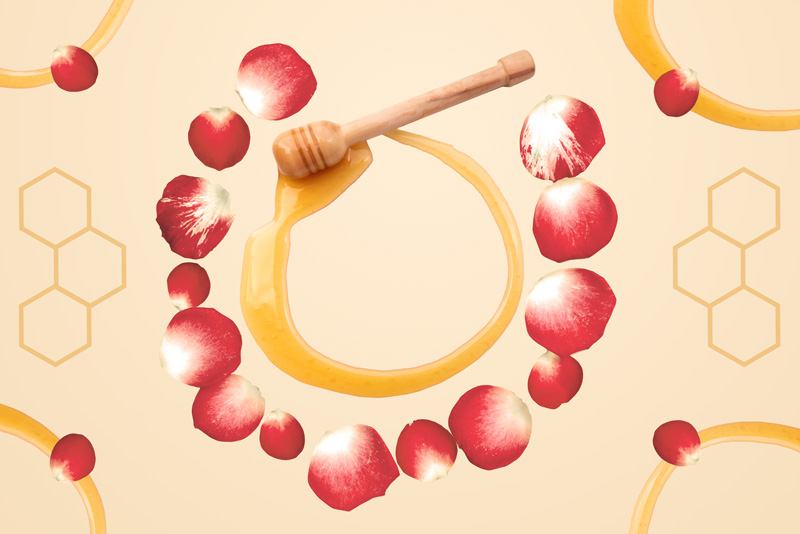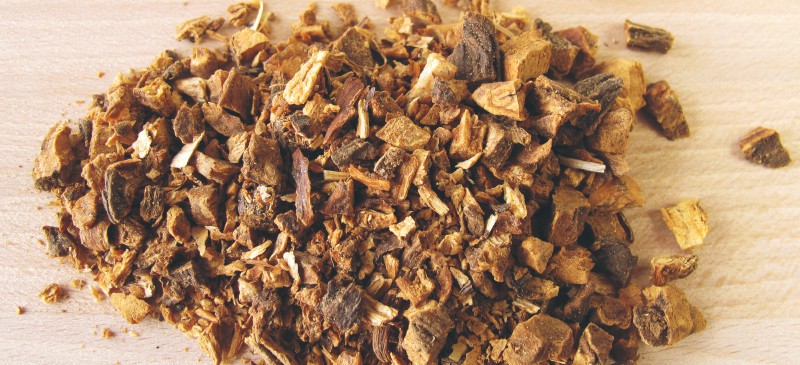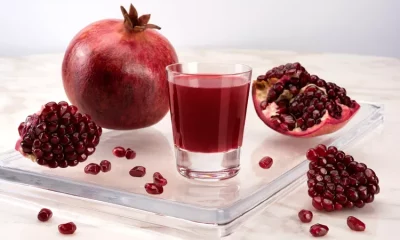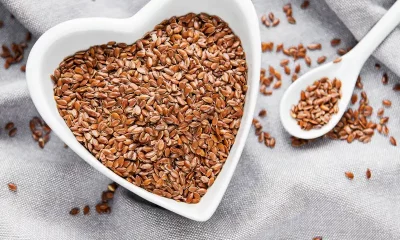Food
15 best foods to increase testosterone naturally

Discover the 15 foods to increase testosterone naturally.
The shortage of this substance can cause health and memory problems in men and women.
Testosterone is a hormone that is associated with masculinity and optimal sexual performance, mainly because it predominates in men, although women also have less.
It is a natural steroid, an androgen hormone, and is produced in the testes and ovaries.
From the age of 30, the production of testosterone begins its decline, and around the age of 70 it has a definitive cessation. However, there are people who, even after the age of 60, do not have a drop in testosterone.
Low testosterone production is associated with loss of libido, erectile dysfunction, low mood, and problems with concentration and memory.
Foods to increase testosterone
Some foods help increase testosterone , which together with a healthy lifestyle can improve our general well-being. Below you can find a list of these beneficial foods for increasing testosterone.
1. Honey
Honey is a delicious food that has many healthy properties. One of its main characteristics is that it contains boron , a mineral that is linked to high levels of testosterone and nitric oxide.
This last component is a neurotransmitter that has a vasodilator function , allowing a better fluidity in the blood vessels by relaxing them and allowing a greater entry of oxygen and blood, which improves the strength of the erection.
2. Granada
Another delicious food, although not widely consumed, is the pomegranate. This fruit has been used for centuries for its health benefits, as it has a large amount of antioxidants, vitamins and minerals .
According to recent research, a glass of pomegranate juice a day can increase testosterone levels by 16-30%.
This has consequences for both energy level, positive mood and increased libido. Now, due to its properties, it is always better to eat the whole food than to make a juice.
3. Cabbage
Cabbage is a very popular vegetable and has several healthy properties, as you can see in this article: ” 12 benefits of cabbage for your health .”
Studies show that cabbage helps prevent cancer and contains indole-3-carbinol, which reduces levels of the female hormone estrogen , making testosterone more effective.
4. Asparagus
Asparagus is a very nutritious and healthy food, as well as being considered an aphrodisiac food.
They contribute to the correct production of testosterone thanks to folic acid, vitamin E, and potassium.
In addition, they promote the release of histamine, which participates in the ability to reach orgasm in both men and women.
5. Garlic
Garlic acts like a natural viagra . According to an investigation by the Albany College of Pharmacy (United States), the subjects of this study who ate garlic improved their blood pressure and their production of nitric oxide (NO).
It appears that the combination of garlic and vitamin C triples NO levels. In addition, garlic contains allicin, a compound that reduces the levels of the stress hormone cortisol and improves the availability of testosterone in the body.
6. Walnuts
Nuts have a reputation for fattening, because they are a high-calorie food with a high fat content.
However, they are very healthy, and the fats they contain are of the healthy kind . Walnuts are also rich in vitamin E, which helps to increase testosterone.
This dried fruit contains the amino acids L-arginine and L-citrulline that increase nitric oxide levels and, therefore, blood pressure. Again, a key food to improve sexual performance.
7. Onion
Another food that helps increase testosterone is onion. According to some studies, if it is consumed frequently it can increase its production by up to 300%.
The onion also improves sexual performance thanks to the fact that it contains keratin , which increases the production of nitric oxide by the body.
8. Olive oil
Olive oil is key in the Mediterranean diet and, as some studies claim, it can also be key for increasing testosterone.
An investigation in which the participants consumed the liquid gold of Mediterranean gastronomy every day for three weeks showed how the participants improved their testosterone level between 17% and 19%
9. Eggs
Eggs are a complete source of amino acids and proteins . Although they can have a bad reputation because their excessive consumption can favor the increase of bad cholesterol, the truth is that it is a very healthy food.
In addition, eggs increase testosterone production thanks to proteins, omega fats and vitamin D.
10. Coconut oil
Although there is a demonization of saturated fats due to the media, an appropriate consumption of these fatty acids can be good for the heart.
This is what many studies suggest, claiming that coconut oil, high in saturated fat, is protective against cardiovascular disease.
It also helps balance cholesterol (more HDL, less LDL) and lipids in the blood. Saturated fats are also beneficial for increasing testosterone.
11. Coffee
Caffeine stimulates the nervous system and increases the levels of cAMP , a nucleotide that functions as a second messenger in several biological processes and that intervenes favorably in the increase in the production of testosterone.
Although coffee consumption can increase cortisol levels, which is a stress-related hormone that decreases testosterone levels, thanks to cAMP increases testosterone production increases.
12. Raisins
Raisins are anti-inflammatory and contain lots of antioxidants, such as resveratrol, which has been linked to increased testosterone and decreased estrogen levels.
In addition, 100 grams of raisins contain 3 mg of boron, which as we have seen is a mineral that favors the increase of testosterone.
13. Avocado
Avocado is a very nutritious food but very different from other fruits , since 77% of its caloric content comes from its fat. Avocado fats are healthy and correlate with increased testosterone production.
Avocados also contain a large amount of vitamin E, which is one of the most important fat-soluble vitamins for testosterone production.
14. Oysters
Oysters are considered the aphrodisiac food par excellence . They are high in zinc that increases testosterone and sperm production. Zinc also has multiple health benefits and is necessary for a good immune system and is also known to inhibit aromatase. This last enzyme helps improve testosterone production.
15. Mushrooms
Mushrooms are not only great as pizza toppings, they are very healthy foods. They are packed with polysaccharides, and as many studies have shown, they have been found to exert anti-estrogenic effects, as they appear to naturally block the aromatase enzyme that converts testosterone to estrogen, just like oysters.
Food
6 Benefits of sweet orange essential oil

Table of Contents
Food
5 Benefits of gentian root and side effects

Table of Contents
- Benefits of gentian root
- Gentian Nutrition Facts
- Side Effects of Gentian Root
- What is gentian?
- What can you use gentian for?
- Discover the 5 shocking health benefits of gentian root and side effects.
Gentian root (Gentiana lutea) is a bitter herb that has been used in traditional systems of medicine practiced throughout Europe for over two thousand years.
The benefits of gentian root besides working perfectly as a liver tonic and digestive aid also has a long history of use in Ayurveda and Traditional Chinese Medicine (TCM).
What is gentian root used for today? Many of the original applications of this herb remain, such as the treatment of indigestion, liver dysfunction, and fatigue.
Among its many active compounds are gentiopicroside and amelogenin, a characteristic bitter compound that binds to bitter taste receptors in the mouth.
Like other bitter herbs and foods, herbalists commonly use the taste and quality of gentian to support digestive health as it helps stimulate bile, increase the attractiveness of foods, and detoxify the liver, gallbladder, and liver. other organs.
Other gentian benefits include fighting inflammation, supporting the nervous system, increasing stamina, and aiding in heart health.
Benefits of gentian root
While it has been used safely and effectively for thousands of years, there are no human clinical studies involving this herb.
The FDA does not regulate the sales of this herb (or other herbal supplements), and few trials have been conducted to demonstrate its efficacy; That being said, there is a great deal of anecdotal evidence showing it has real uses and benefits.
1.- Helps improve digestive, liver, and gallbladder function
One of the most popular uses for this herb centuries ago and is still improving several facets of digestive health today.
Gentian herb has traditionally been used as a ‘gastric stimulant’ due to the effects it has on the excretion of saliva, bile, and enzymes, there is some evidence that it can stimulate the secretion of enzymes in the small intestine and increase gastric secretion, which facilitates the breakdown of food and the absorption of nutrients. Some of the purported benefits of gentian root for digestion include.
• Reducing loss of appetite
• Decreased nausea, heartburn, diarrhea, and general aches
• Improving saliva production by stimulating the membranes of the mouth and taste buds
• Helps with the production of gastric juices and bile secretion
• Support for liver and gallbladder functions
For centuries, gentian root has been known as a liver tonic and advocate for detoxification, as evidenced by its strong bitter taste.
Gout, jaundice, dyspepsia, and dysentery are some other conditions that are used to naturally treat treatment.
According to tradition, gentian taken with rhubarb is most effective in improving digestive symptoms, such as loss of appetite and nausea.
One study found giving patients 600 milligrams of gentian root a day helped relieve symptoms such as abdominal pain, nausea, heartburn, flatulence, constipation, loss of appetite, and vomiting.
To support the general health of the liver, it is recommended to use it in conjunction with other liver purifiers such as dandelion root.
Dandelion root is often powdered and roasted to use as a coffee substitute or added raw to herbal teas, both the root and leaves of the dandelion have been shown to protect the liver, reduce cholesterol, and triglycerides, fight bacteria and maintain eye health.
2.- Helps fight oxidative stress and chronic disease
Like other nutrient-dense herbs, gentian has antioxidant properties that help protect cells from free radical damage (also called oxidative stress).
Its active compounds (more on these below) are also beneficial in protecting against infection and reducing damage to the smaller arteries and blood vessels.
Gentian root beneficial compounds have anti-inflammatory effects that appear to benefit the cardiovascular, respiratory, and digestive systems.
For example, isovitexin has been a natural antiatherosclerotic agent that protects vascular smooth muscle tissue and increases cellular nitric oxide activity; This is beneficial for the prevention and treatment of arteriosclerosis or hardening/thickening of the arteries; it also has blood-pressure-lowering effects.
There is preliminary evidence that components, including secoiridoid, iridoid glycosides, gentiopicroside, xanthones, polyphenols, and flavone, may help defend against cancer due to their anti-inflammatory and anti-tumor effects.
3.- It can help reduce inflammation and pain
What are the benefits of gentian root if you have chronic pain? The active compounds found within this herb have been shown to fight inflammation and positively modulate pain pathways in the brain to decrease discomfort.
It can help reduce antibodies and autoimmune reactions that can lead to joint pain, fatigue, and weakness.
Gentian can also dilate blood vessels and help improve circulation, facilitating healing; This is why it is sometimes used to treat migraines, menstrual cramps, stomachaches, muscle spasms, and more.
Additionally, a compound in the gentian called erythrosine has been shown to have sedative and muscle relaxant effects, reducing spasms and cramps; Gentian root benefits can help reduce high blood pressure and lower heart rate in response to pain or stress.
4.- Helps treat wounds and infections (including sinus infections)
Gentian is applied to the skin to treat various types of wounds and fungal infections, it has been shown to kill harmful bacteria and improve blood flow to wounds or damaged tissues.
Several studies have found that it has antimicrobial and antifungal properties.
Gentian is combined with other immune-boosting herbs (including elderberry/elderflower, verbena, and sorrel) in a formula called Sinupret, which research studies have shown to help treat symptoms of sinus infection ( sinusitis).
The compounds in this herb can also help inhibit bacteria that can cause other infections; In addition to fighting bacteria, gentian has also been shown to help decrease fungal and yeast infections, such as those caused by Candida albicans.
5.- Supports the Nervous System
The benefits of gentian root seem to support the central nervous system by helping to relax muscle tension and act as a natural sedative, but at the same time, it also helps fight fatigue.
In animal studies, the secoiridoid compounds found in gentian, such as gentiopicroside, swertiamarine, and sweroside, have been shown to increase endurance and decrease muscle fatigue.
Another herb that gentian can be used in combination with the nervous system is the adaptogen called licorice root, which has been used for centuries to treat fatigue, stress-related symptoms, coughs and colds, gastrointestinal problems, and reproductive problems.
Licorice root can help gentian to be more effective. It is often used in Chinese medicine as a “guide medicine,” helping to improve other herbs and remedies to make them more beneficial.
Gentian Nutrition Facts
An analysis found that the most active components found within gentian root benefits include:
• Gentiopicroside (the most dominant compound)
• Loganic Acid
• Swertiamarin
• Other xanthone glycosides, including gentisin, isogentisine, amelogenin, and gentiopicrin
Gentiopicroside, one of the most extensively investigated Secoiridoid compounds isolated from Gentiana lutea, has been shown to have benefits in animals, such as fighting inflammation and reducing pain; it is believed to have analgesic effects due to the way it affects pain-induced synaptic pathways in the brain; it also has anti-inflammatory, hepatoprotective and antiparasitic effects.
Additionally, certain studies have found gentianine to have antidiabetic, anti-inflammatory, antipyretic, sedative-hypnotic, and diuretic effects.
Amarogentine is a compound found in this herb that contributes to its bitter taste. Like other bitter herbs and foods (such as coffee or dandelion root), it has a strong gastric effect by stimulating the production of digestive fluids.
Isogentisine is another compound that has been associated with the prevention of endothelial injuries, such as smoking.
In one study, when 22 natural alpine plant extracts were tested for their potential to protect human vascular endothelial cells from cigarette smoke-induced cell damage, Gentiana lutea extracts were shown to be the most effective; Research suggests that isogentisine promotes cell survival by activating cell repair functions.
Side Effects of Gentian Root
Gentian root can sometimes be irritating to the digestive system in people with gastrointestinal conditions, including ulcers.
Taking the root can also lower blood pressure and affect blood sugar (glucose), which can lead to weakness and fainting, so it is recommended to speak with a doctor first if you take medications to control blood and blood pressure.
This herb is generally considered safe, however, cases of gentian poisoning have been reported when people have used the herb to make their wines/spirits and tonics.
Possible side effects that may occur include stomach irritation, nausea, vomiting, diarrhea, headache, skin irritation, and increased acidity in the stomach.
If you experience gentian side effects, stop using the product immediately and speak to a doctor if you don’t feel better in a day or two.
What is gentian used for in traditional medicine systems?
In traditional Chinese medicine (TCM), the gentian root is called Long Dan Cao. Its most common use is to treat liver-related diseases and support detoxification; It is one of the three main natural flowers of China (the other two are azaleas and primulas); he sees it as a cold and bitter scent (which removes heat and moisture), which helps the liver and gallbladder.
Some of the main uses of gentian in TCM include treating jaundice, vaginal swelling and itching, vaginal discharge, persistent erection, itching due to eczema, red eyes, deafness, and hypochondriacal pain.
In TCM, it is commonly taken with other healing herbs; it also helps reduce inflammation, provides relief from spasms, stimulates blood flow in the digestive and pelvic region, promotes menstruation, and helps eliminate headaches, fatigue, and fever; It can be found in the form of tea, liquid extract, tincture, capsule, or raw root extract.
It can be used to make tonics in combination with gentian, valerian root, and passionflower.
Gentian “medicine” is also revered in Ayurveda, as are many other bitter herbs; It is considered to be a “cleanser” due to its very bitter taste, it helps cleanse the liver and stimulates digestive secretions.
It is also used for its anti-inflammatory effects and as a natural remedy for the treatment of sinus infections; often substitutes bitter gentian for other comparable bitters, such as chiretta or kutki.
These bitter herbs are said to cleanse the mind and prepare the body for eating; Ayurvedic practitioners generally recommend consuming between one and two grams per meal and paying attention to the bitter taste for the best effects.
What is gentian?
It is a bitter herb from the Gentianaceae plant family that is native to the Alpine and Himalayan mountain regions.
It has a long history of use in medicinal herbs, especially to treat stomach ailments, liver disease, and aid with digestion. Today, it is most widely grown in Europe, China, and parts of North America.
What does the name gentian mean?
The herb is said to be named after the Illyrian king named Gentius (lily was a region in the western part of the Balkan Peninsula that was conquered by the Romans around 160 BC). Records show that Gentius was one of the first to discover the medicinal properties of the plant and use it to create healing tonics.
There are more than 400 different species in the Gentianaceae family, and at least several species in the Gentiana genus are used in herbal medicine, including Gentiana lutea, Gentiana manshurica Kitag, Gentiana scabra Bunge, Gentiana triflora pall, and Gentiana iridescent Franch.
There are also many alternative names to which gentian is sold based on the specific formula and genus, including yellow gentian, Chinese gentian root, gentian root, bitter root, pale gentian, felwort, and radix gentian are.
What can you use gentian for?
Historically, it has been used to treat:
• Hepatic injury
• Stomach and digestive problems, such as loss of appetite, diarrhea, gas, bloating, heartburn, and nausea
• Migraines
• Sinus infections
• Period pains
• Chronic fatigue and weakness
• Scalp eczema
• High blood pressure
• Parasites
• Psoriasis
• Hair loss
• Jaundice
• Gout
• Hepatitis
• Candida
• Food allergies and intolerances
• Poor child growth and development
Where to buy gentian root:
• Gentian root is used to make concentrated (bitters) extracts, teas, tonics, liqueurs, powders, capsules, and tinctures. It is most commonly taken in capsule form, but it is also used in herbal teas and as an alcoholic extract called Angostura bitters.
• The part of the plant that is normally used medicinally is the dried, mature root of the plant. Some supplements, teas, and tonics may also include other parts of the herb, such as the stem or leaves.
• Gentian supplements are available at some health food stores, online, and by working with a trained herbalist.
• Always read product labels carefully and look for a reputable supplement brand that lists active ingredients on the label. The most widely available type of gentian supplement is the root of the species Gentiana lutea.
• To increase digestion and liver health, look for combination products that include gentian in addition to other beneficial herbs, such as licorice root or rhubarb extract.
How to use gentian:
• Take it about 20 minutes before each meal to help with digestion.
• While it’s likely to be used safely for several months, most herbalists recommend taking this herb for about two to three weeks at a time before taking a break (especially if you’re taking high doses).
• If you are making your formula, you need to clean, dry, and root (or buy dry powder) first. Be very careful not to use the highly toxic white hellebore, which can be misidentified as gentian and be poisonous
Food
12 Benefits of acai berry and side effects

Table of Contents
- What are acai berries?
- Health benefits of acai berry
- 1. Acai berries have great antioxidant power
- 2. Benefits of acai berry for heart
- 3. Anti-proliferative virtues
- 4. Benefits of acai berry for skin!
- 5. Benefits of acai berry for digestion
- 6. They reduce lung irritation
- 6. Acai improves the overall health of your body cells
- 7. Benefits for the entire immune system
- 8. Anti-aging Virtues
- 9. Acai berries increase the amount of energy
- 10. Benefits On Libido
- 11. Improves Cognitive Functions
- Discover the 12 amazing health benefits of acai berry and side effects.
Many berries are healthy and should be included in our diet more often. Most are loaded with antioxidants and vitamins. This is particularly the case with acai berries.
benefits, virtues, shape, health, vitamin, antioxidant- What are acai berries?
- Health benefits of acai berry
- 1. Acai berries have great antioxidant power
- 2. Benefits of acai berry for heart
- 3. Anti-proliferative virtues
- 4. Benefits of acai berry for skin!
- 5. Benefits of acai berry for digestion
- 6. They reduce lung irritation
- 6. Acai improves the overall health of your body cells
- 7. Benefits for the entire immune system
- 8. Anti-aging Virtues
- 9. Acai berries increase the amount of energy
- 10. Benefits On Libido
- 11. Improves Cognitive Functions
What are acai berries?
Acai berries (Euterpe oleracea) are extracted from a palm tree native to South America. Their use was restricted until recently due to their difficulty of access. Indeed, they were found almost only in the Amazonian swamps.
Acai berries, like other berries (blueberry, gogi berry, cranberry, raspberry), have some benefits for the body due to their high content of antioxidants, natural vitamins C and minerals. People who want to get back in shape, to regain tone or to cleanse their immune system often use them.
Health benefits of acai berry
1. Acai berries have great antioxidant power
This is the greatest asset of these Amazonian berries and many of its benefits and virtues derive from this powerful power.
Acai berries have an immense antioxidant effect due (among other things) to the presence of manganese and polyphenols. These two components help inhibit free radicals: molecules that oxidize cells in the human body.
By fighting against oxidation in the body, acai berry helps in the fight against certain cancers, cataracts, arthritis and other degenerative diseases.
2. Benefits of acai berry for heart
As with red wine, research shows acai berries to be extremely high in anthocyanins, an antioxidant that helps balance cholesterol.
Acai is also rich in plant sterols, which offers cardioprotective benefits like better blood circulation, better blood composition as well as greater dilation of blood vessels.
3. Anti-proliferative virtues
Studies have shown the anti-proliferative benefits of acai, especially at the time of proliferation of leukaemia cells in the body.
4. Benefits of acai berry for skin!
Acai oil is a great natural alternative to chemicals. Currently, many beauty products contain acai oil due to its high content of antioxidants, vitamins and minerals.
When ingested or applied, the berries nourish the skin and give it a healthy glow. Brazilian women know this benefit very well and have eaten acai berry for centuries to promote healthy skin.
5. Benefits of acai berry for digestion
Acai can also help maintain a healthy digestive system. These berries have powerful detoxification abilities and are an important source of dietary fibre for the body.
The fibres make it possible to fluidify food transit and are used in particular to fight against constipation. Of course, many other foods rich in it have the same effect, including other types of berries and fruits.
6. They reduce lung irritation
Like blackberries, raspberries or grapes, acai berries can prevent lung irritation and respiratory distress. This virtue is mainly due to the berries’ high content of antioxidants.
6. Acai improves the overall health of your body cells
Generally speaking, the anthocyanins found in acai berries play a role in the body’s cellular protection system. They participate in the conservation of the strength and vitality of cells and fight effectively against the invasion of free radicals and oxidation of the body.
Besides, the high content of vitamins and minerals in acai contributes to the proper functioning of the cells of the body.
7. Benefits for the entire immune system
A study found that the polyphenolic compounds extracted from acai reduced the proliferation of dysfunctional cells in the human body by up to 86%.
The acai berry is believed to contain phytochemicals that can disrupt cell mutation at the molecular level, killing affected cells before they multiply. Which would add a string to its bow when it comes to the fight against cancer. While there is nothing to say that acai berries can cure these kinds of ailments yet, hopes are turned to research.
What is certain today is that the acai berry contributes to the good shape of your immune system.
8. Anti-aging Virtues
With extremely high content in many phytochemicals, acai berry can slow down or reverse oxidation damage that causes ageing processes in the skin and the body in general.
Acai berries are one of the best sources of antioxidants; a berry has ten times more antioxidants than a grape and twice as much as a blueberry.
The consumption of acai berries can therefore generate better skin health, but also articulatory, muscular and organic.
From the point of view of the organs, we think in particular of the brain, which would age more healthily. Antioxidants, vitamins and minerals each still play their part in this action.
9. Acai berries increase the amount of energy
Due to its health benefits (including its antioxidant benefit), consuming acai can lead to an increase in overall energy and stamina levels, and can help fight fatigue and exhaustion.
This virtue is mainly due to the benefits of antioxidants which relieve the body of the painful struggle against free radicals.
Because as long as the body must mobilize its forces to fight against them, it cannot use them for other tasks and it is the other functions of the body that suffer. Fatigue and stress, for example, result.
10. Benefits On Libido
The acai berry plays a direct role in the blood circulation in the human body, which helps to stimulate libido and in particular to facilitate and strengthen erections in men.
11. Improves Cognitive Functions
Preliminary studies show that acai can improve cognition and promote healthy ageing of the brain. More studies are needed to confirm these benefits, but this is already a good start.
BEFORE YOU BUY ACAI BERRY
Be careful to choose berries certified as fertilizer and pesticide-free. Not only will they contain more minerals, vitamins and antioxidants, they will also taste better.
If you can’t find acai berries, goji berries are also known to have a high (albeit lower) antioxidant concentration.
We hope the article on the 12 amazing health benefits of acai berry has been helpful.
-

 Food8 months ago
Food8 months ago10 + Benefits of carrot juice and side effects
-

 Food8 months ago
Food8 months ago8 shocking benefits of leek juice and side effects
-

 Health8 months ago
Health8 months agoBenefits of guava leaves Sensually
-

 Health8 months ago
Health8 months ago5 Shocking health benefits of kinkeliba and side effects
-

 Health8 months ago
Health8 months ago7 health benefits of cashew leaves and side effects
-

 Health8 months ago
Health8 months ago13 shocking health benefits of Thai eggplant
-

 Health8 months ago
Health8 months ago10 shocking health benefits of Canary seed milk
-

 Food6 months ago
Food6 months ago19 Benefits of tobacco plant and side effects












